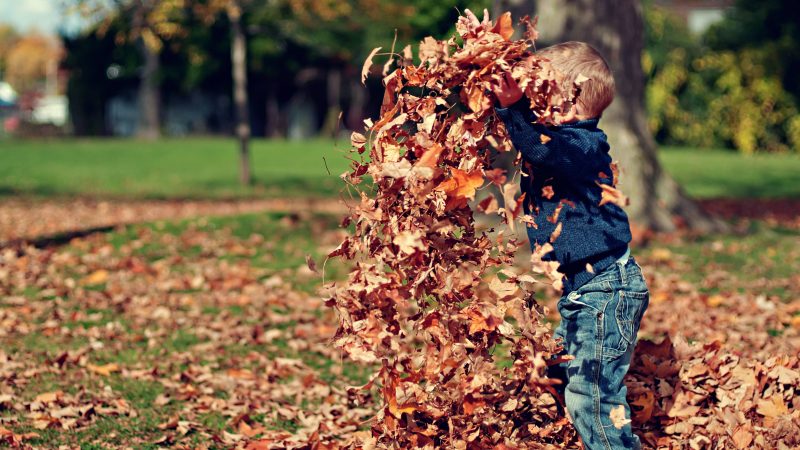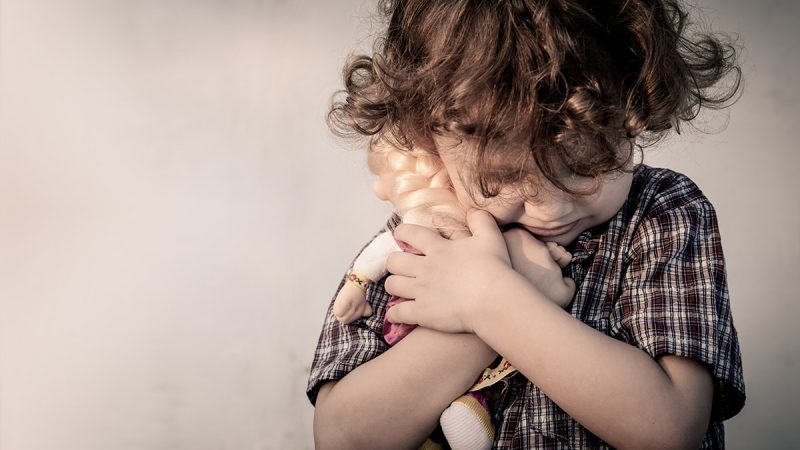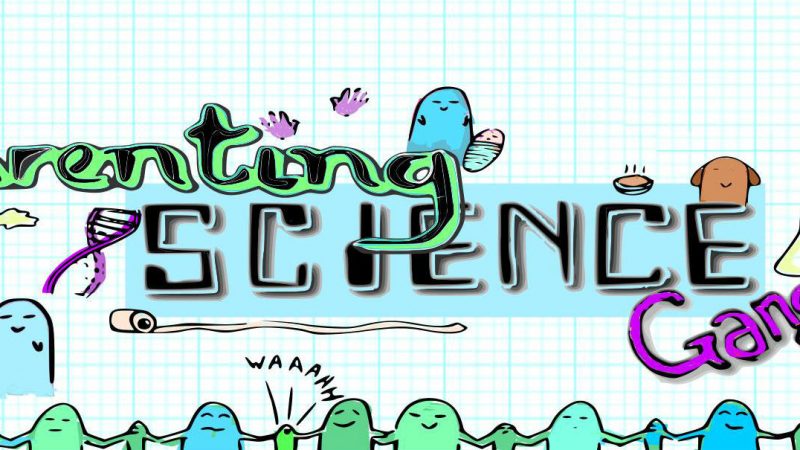
Playing outside – a Q&A with Prof Zoe Knowles
Last week we enjoyed a chat with Professor Zoe Knowles about the value of active play outside:
Image: Scott Webb
Hello, I am Professor Zoe Knowles I’m a HCPC Registered Practitioner Psychologist; Associate Fellow of the British Psychological Society (AFBPsS) and Fellow of the British Association of Sport and Exercise Sciences (FBASES).
I have several research interests including the psycho-social determinants of physical activity, the benefits of natural and active play, creative and qualitative methodologies with children and the design/evaluation of sport psychology interventions within youth sports.
I work a school term time only contract which helps with work and family life balance and gives me plenty of time to get outdoors! I’m an army veteran wife and am a mum of two girls who had the benefit of attending a primary school with a Forest School and now miss it as they have gone to High School this academic year!
Q: Are there studies on the benefit of forest school (FS)?
Zoe: There are – some of my past work is available on this page http://www.merseyforest.org.uk/our-work/forest-school/ and we are due to publish some more work soon on how active children are when engaged in Forest School.
PSG A: Exciting. My son is at a nursery because they have a forest school once a month. His local primary has an urban one it seems. Squeezed in between the school and the fence where the main road rumbles by they make greenhouses out of Lemonade bottles and grow things and it looks wonderful ?
Zoe: I am seeing more Forest Schools appearing now Katie and some schools are now joining the movement! How lovely to think that whilst urban life in happening such activity is going on!
PSG B: Have you found that children show different sorts of physical activity in a natural environment rather than say, in a sports facility or a soft play space? How is that activity different?
Zoe: There is evidence to suggest that children are more active when outside for sure, we compared ‘Forest School day’ with that of a day with a PE lesson and a classroom-based day.
Q: Please could you tell us more about what psycho-social determinants are?
Zoe: This is about the psychological reasons why we do or don’t get active and also the societal reasons too. Sometimes they overlap and one influences the other.
PSG C: Do you have any links you’re able to share for more information on this?
Zoe: If you mean the psycho-social research then there are research publications here: https://www.ljmu.ac.uk/about-us/staff-profiles/faculty-of-science/sport-and-exercise-sciences/zoe-knowles
I have worked with families, school settings (incl SEN) and community groups interventions.
Q: What are the key influences on a child to get outside and play? Is it more important this comes from home or school / nursery?
Zoe: I think daycare/ pre schools have a role to play and I have been encouraged to see how changes to EYFS have got providers thinking about how they can use outdoor space of any type to encourage children to be active.
PSG A: Is access important? We changed nursery so he had free flow in and out.
Zoe: I would agree – parents are asking those questions when choosing a nursery now.
Q: I’m interested in the effects on children of our risk aversive culture. Has your research looked at parental attitudes to playing outside?
Zoe: Yes, in the research we spoke to parents about how their attitudes to outdoor play and they raised concerns about danger and risk.
At my own children’s school parents made strong representations to the headteacher and LEA on this!
PSG B: What sort of risks were they concerned about?!!! And how were they answered?
Zoe: They were concerned about cuts, bruises, climbing, slippery/uneven surfaces, independent mobility – so the children were not constrained and also the fact that the activity was child led not staff directed. Specific concerns as to using tools and behaviour around the fire pit.
PSG B: What a shame. I can understand concerns about behaviour around a fire pit (though I think that rather suggests a lack of trust in teachers’ abilities, which is sad), but cuts and bruises?!
PSG A: Concerns that the activity was child led? Pff
Q: I’m curious about how play changes when the play area is structured, unstructured, or even themed (like here is a pirate ship) or an unthemed playset. Is a mix good, is one predominately better than the other, is some better than none?
Zoe: Colleagues at LJMU have done lots of research looking at playground marking and fixed equipment and how children engage with it. It has a shelf life (look at work from Gareth Stratton and Nicky Ridgers) and so by using natural play we can change the environment more often and a log for example becomes a spaceship, a pirate ship or whatever……!
Q: I was wondering what the key societal benefits are for outdoor play, and does learning outside the classroom link in with Forest school?
Zoe: As an example we have found that children can act as change agents and when we teach them how to play, appreciate, engage and learn in the natural environment that this is picked up at home and stimulates the family to ‘get outdoors’ too!
Q: What is it in particular that’s so beneficial to being outside rather than playing or exercising inside? Is it ‘fresh air’ or is there some other factor?
Zoe: There are health benefits to being outside and engaging with nature. Children report feeling ‘free’ and that it is a break from the classroom which is a sedentary place by default. We know that those children who may find it hard to be in a classroom and learn find this easier outside.
PSG H: Thanks Zoe, that’s interesting. My son goes to a forest school nursery and although it’s mainly for the older kids, they do spend a lot of time outside playing. It’s just as well because we’re not very good at getting outside to play at home! ?♀️
Zoe: It was certainly interesting to hear from parents in our research who were honest in that they didn’t know themselves what to ‘do’ in the outdoors and how to play – we brought parents into FS, showed them what the children did and where they could take it as parents – think of it as parents evening….but outdoors!
PSG C: Zoe I feel ‘free’ in nature too; it’s such beautiful space to be, isn’t it. There’s something quite magical about learning within everyday life, especially outdoors.
Q: Can you ever have too much outside exploration type activities? Are there specific activities which aid development?
My daughter is happiest when out and about but struggles with structured activities especially inside.
Zoe: The principles of FS are about child led activity which is guided by adults. FS should be a mix of activity for example to develop fine and gross motor skills, social skills perhaps by working in groups and also allowing children to become risk aware.
PSG I: We go to a forest school group and they get to roast marshmallows etc, I think it brilliant to learn about risks. I’m always pointing out different plants and things so I hope I’m guiding her enough to develop some vocabulary but we often just explore.
Q: It seems to me that more and more children are being ferried around to afterschool activities that are mostly adult led and instructed and while it’s great they are getting exercise, my concern is that they perhaps are not getting enough free play to run around, decide on the games and rules themselves without adult intervention. Have kids forgotten how to just play?
Zoe: This is a great point. FS leaders are highly trained to allow this to happen, within safe boundaries but encourage the children to explore, make rules and design games.
Q: What are the different benefits between free play outside and free play in a setting like softplay?
Zoe: Good question. For me it’s about the outdoor setting being unpredictable and at times with some risk children need to negotiate that, the outdoors also changes daily because of the weather, seasonally and with soft play its ‘fixed’ There’s lots of things to see, touch etc that you don’t get in soft play.
Q: How do schools work forest school activities in to their curriculum? I know of a couple that do it sporadically in the early years but with more and more restrictions from the government around what to cover is this at risk?
PSG J: I saw an interesting ted talk recently on the decline of play and one of the things mentioned was that yard time/recess was getting shorter and shorter. This surely would lead to attention problems in the classroom later so why is it happening?
PSG I: Yes good point! In my brief stint of psychology I was told we get about 20 mins of good attention at a time and yet there’s such pressure on children in school.
Zoe: I think there is pressure to deliver classroom-based work, shorten the school day and to me that’s wrong. For most children the school day overall presents a significant proportion of their time each day being physically active.
PSG C: Do you remember the name of the Ted talk?
PSG J: Think this was the one; The decline of play by Peter Gray: https://youtu.be/Bg-GEzM7iTk
PSG C: Thanks so much.
Q: What are the best strategies / equipment / resources to provide children with to help them get the most out of being outside?
Zoe: I think it’s about using the resources you come across like leaves, twigs, mini beast hunts, puddles, moss and climbing….. letting children run, jump, splash…. how about listening to the sounds of nature too.
PSG G: My children have fished crocodiles out of muddy puddles. Their imagination is completely unhindered outdoors. I see my eldest son’s anxieties melt away.
Q: I was wondering if you have any research around mental health impact (I assume benefits) for kids who spend a great deal of time in these types of environments? My son is starting forest school nursery in September (2.5 years) and he’s a bit of an anxious tacker.
Zoe: Children do report being less anxious and although we haven’t tested this with psychometrics we have spent time working with children about how FS makes them feel. I think that it important that we listen to such reports that children make.
PSG C: I imagine the mental health benefits are significant for both children and parents / carers. My children outdoors are not quite the same as indoors; both of course have their place.
Zoe: I agree, both have a place. There is a lot of research around adults and their engagement in the outdoors leading to mental health benefits. There is some large scale research going on with the Mersey Forest around the Natural Health service and we presented at a national conference on that today!
PSG C: Thanks. Tips on how to find this research is appreciated if you have a couple of spare minutes. Thanks.
Zoe: We presented at the Community Forestry conference in Birmingham today, reports to follow – look on the Mersey Forest website under the Natural Health service for their annual reports as an example of such work linked with mental wellbeing.
PSG C: Thanks so much.
Zoe: Also look also at plans within DEFRAs 25 year plan which contains some good evidence review, this was released recently.
PSG C: Thanks loads.
Q: I try to get out with my daughter as much as possible, I’m a farmer’s daughter so massively appreciate the great outdoors and all the adventures you can have. I worry that I’ve lost the ability to play though and use my imagination to help my daughter (she’s only 21 months), we always talk about and touch/smell the plants, tress, animals, bugs we see…..is this enough though?
I guess I worry because I had the privilege of growing up on a farm and I now live in a city so it plays on my mind a lot that my daughter doesn’t have the same amount of outdoor freedom that I did.
Zoe: Thanks for this. Parents tell us that they have this same fear – what do I do? how do I make it fun?
You can get ideas for activities from your local ranger service, forest park or look for events that are being ran near you. In Liverpool there are family FS sessions on a Saturday for example, the National Trist have some great activities going on – we are trying Forest Frisbee golf at Plas Newydd his Spring!
PSG C: I wonder the source of these fears. Perhaps we don’t need to particularly help them to engage with the outdoors. We can just follow their leading as they freely explore and discover. I’ve decided that I don’t need to protect mine from boredom; and I refuse the fear of them getting bored too. Interesting really.
Q: I’ve noticed my 5.5 year old is pretty observant when we’re outdoors noticing lots of things that I miss, such as certain leaves looking like cocoons, or twigs in the shapes of letters.
I’ve put this down to the fact we’ve always done gardening together, and spent a lot of time outdoors, nature trails, bug hunts etc.
Is there any research on spending time doing outdoor activities enhancing other life/important skills?
Zoe: Yes, our parenting work reports that parents can ‘connect’ with their children as distractions from screens, chores and particularly from working parents when such time is limited it is reported as quality time.
We are looking into tracking some of our original forest school children from 2009 and seeing what they are doing ten years on. We have anecdotal reports on file that they sought out Brownies, environmental/community groups or in some cases as a family got an allotment!
Q: I feel really strongly about not ‘helping’ children when they play eg I would not give my child a leg up a tree or a climbing frame because I think the ability to get up there shows they can manage the tree/climbing frame on their own and if they need help they shouldn’t be up there. Is there any science behind that?
Zoe: Parents do have concerns over the freedom that is given to children in FS. In my children’s school those who did were invited in to see what went on and in fact some ended up volunteering with other classes! Children do need to become able to appraise risk when playing and FS leaders teach this carefully getting them to work through systematically…. they ask them questions and the children make their own decisions.
Q: I am finding it harder to encourage outdoor time as my children get older. My 9 year old isn’t interested in bug hunts/mud kitchen etc anymore although she’ll do tree climbing and that kind of thing. Have you got any tips for outdoor things as kids reach older primary/pre-teens?
PSG E: My boys loved Woodcraft Folk
PSG O: I had considered woodcraft folk as it looks great but the nearest one is too far for us in an evening. Thanks though, consider all options!
Zoe: The National Trust are building more natural play areas like at Erdigg or Plan Newydd, I’m sorry I only know about these ones but worth a look on the app….. Have you considered going on some guided walks with rangers or local community groups maybe…. beach clean ups etc
PSG O: Guided walks would be a definite rejection from 9 yr old but possibly I could get her interested in community nature type work – maybe some bribes would help of cake after. We have been to some amazing natural and adventure playgrounds in Norfolk when on holiday, wish we had something similar near us – it’s all quite ‘safe’.
Q: My daughter (3 next month) is afraid of everything outside. Cobwebs, wet things, cold things, wind, bright sunshine, anything smaller than her, anything that moves etc! We’ve tried really hard to encourage touching things in the garden and dressing appropriately to eliminate those factors. I’m not sure if that’s an age thing, or if it’s going to affect her going forward. I guess my question is – should we be forcing outdoor play even when she doesn’t want to, or just encouraging certain activities when she’s in the mood (like squelching in the mud formed around her paddling pool in the summer!)?
Zoe: I would take it as being when she is in the mood as a start-point. Sometimes parents tell us their child won’t do something outdoors and yet when with other children they seem to overcome this.
Have you thought about going to some sessions where she could work with other children and see what happens…..
PSG P: Thanks. I think I definitely need to look into more outdoor groups. She’s also fiercely independent with her play and until very recently, hasn’t wanted to play with other children. We’ve been going to a fun dance class for almost a year and only the last few weeks has she let go of my hand! At home though, she is brilliant at free / imaginative play. I’ll have a look into what’s available locally. Any ideas of organisations that do these types of sessions? Or do they tend to be independent groups?
Zoe: You can look on the Forest School Association website as a starting point. Ranger service, National Trust…. tried and tested in our house!
PSG P: Perfect, thanks


